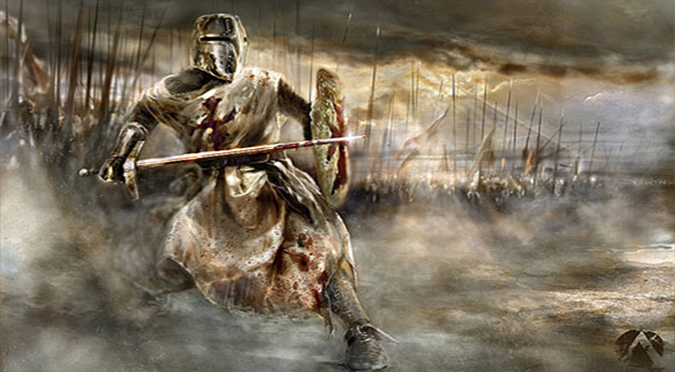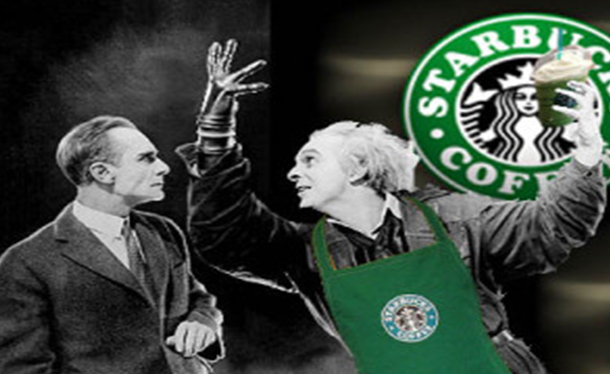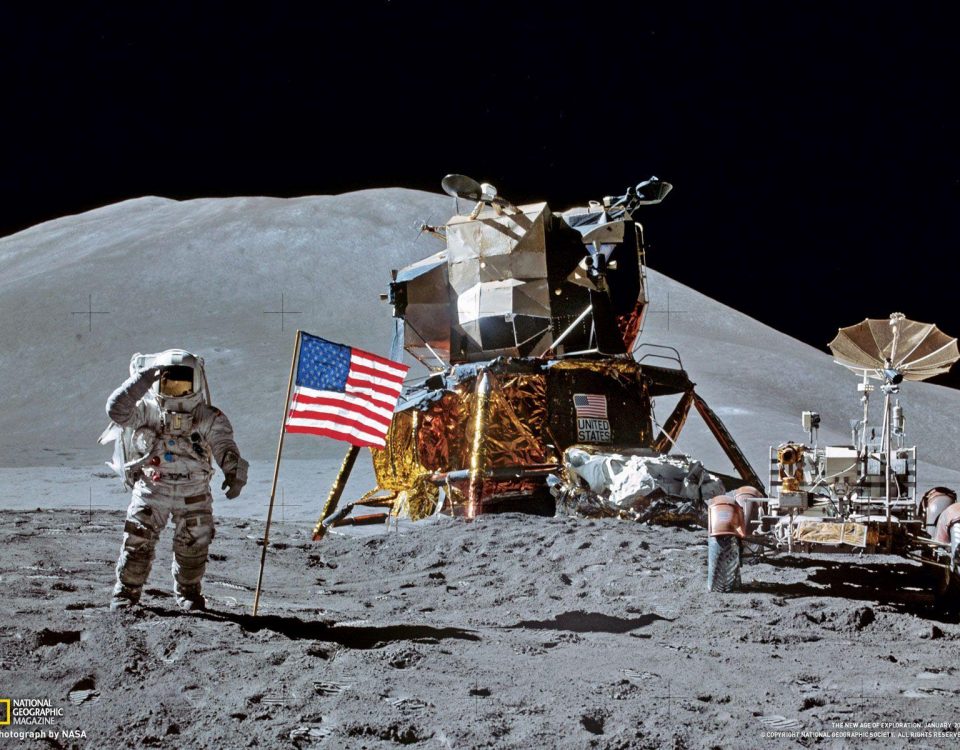
THE CRUSADES – Part Four
January 22, 2014
Like EpikFails.com? Support or share! :)
February 16, 2014*Note: originally written in 2014. CONTENT WARNING: harsh language, descriptions of violence, and crude humor.
Napoleon Bonaparte: 1769 – 1821

“History is a set of lies agreed upon.” – Napoleon Bonaparte
Alexander the Great. Julius Caesar. Genghis Khan. Napoleon.
Like so many historical figures, he was… a complicated person.
Napoleon Bonaparte is without a doubt one of the greatest conquerors in a long line of country-crushing-bastards. The dude was considered a legend for a reason – his hardcore tenacity, unmatched tactical skill, and ability to motivate others to face down certain doom. If boldness could be measured like a liter of 40-proof vodka, he would probably register off the charts. Bonaparte is credited with redesigning Paris, restructuring much of France’s legal system, making social progress with education and economic reforms, uniting several countries, and commanding one of the greatest armies the world has ever known.
With all that in mind, Napoleon was also a gigantic screw up…

(Also, according to the historians known as Bill and Ted, he apparently loved him some ice cream sundaes.)
Like Richard the Lionheart, Columbus, and Andrew Jackson, Napoleon Dynamite Bonaparte is more legend than man, and as a result of his iconic status in history, many are content with overlooking his flaws in light of his achievements (which were notably numerous), but there’s no doubting that in the end, Napoleon did ultimately FAIL. (Otherwise we’d be living in a bizarre Twilight Zone episode featuring an alternate universe in which Earth has been renamed Planet Bonaparte under the reign of Napoleon XIV… last I checked that isn’t the case… right?!)
Napoleon I is one of the most admired and simultaneously reviled people in history. In fact this guy is so polarizing that both Hitler and Reverend Dr. Martin Luther King Jr. admired him, while many others (including a fair amount of historians) despise Napoleon with a fiery passion. However, it’s worth nothing that a lot more data has surfaced in the past few decades that tend to paint Napoleon in a slightly more negative / genocidal light.

“You either die a hero, or live long enough to see yourself become a villain.”
– Gotham District Attorney Harvey Dent.
For starters, Napoleon usurped power through force and became a totalitarian dictator. He restricted the rights of women to that of *minors*, enslaved hundreds of thousands, and executed even more. Under his rule imprisonment without trial became the norm, and young men from all the countries conquered under his reign were drafted by force to fight in the Napoleonic Wars. In addition, a genocide was committed against Haiti, France was plunged into a depression, and to top it off, the deaths of 3.5 million across a war ravaged Europe, including over a million civilians. (Yikes)

Tru Dat.
Napoleon Bonaparte was a master tactician, a ruthless commander, and an impatient greedy bastard with a psychological complex named after his insatiable need to compensate… for something. According to urban myth Napoleon was a short dude, but in actuality he was closer to 5’7, not exactly a pro basketball star, but certainly not the oompa-loompa everyone makes him out to be.
It could be argued that Napoleon was essentially the original gansta. He was a ruthless, cold-blooded narcissist , who didn’t just pop a cap in your ass for laughing at his accent, he would blast your face off with a cannon (point blank), before systematically leveling your country and then having your friends and family thank him for it.
Napoleon rose from humble beginnings, he became a brilliant commander of the French military following the revolution and eventually manipulated his way through the political arena as well and assumed control of the country itself as its first ‘First Consul’. Turns out that wasn’t enough for our boy Napoleon, he had set his sights on total global conquest and nothing would deter him. He crowned himself Emperor and set out to conquer the globe. Just like the footsteps he followed in, and those who followed his, he too did not succeed in his humble goal of world domination.
Napoleon may have failed in his goal of conquering the planet, but he did so with style. His valiant attempt to crush all who opposed him was so epic that you could almost consider him a success. The only problem with his diabolical master plan to rule the world was: the plan itself.

In 1779, Napoleon Bonaparte, a Corsican-born nobody enrolled in the French military academy, and by 1785 graduated as an artillery lieutenant, a position previously exclusive to nobility. When the Bastille was stormed in 1789 and the (first) French Revolution started its whole conveyor belt to the guillotine, Napoleon distinguished himself between both revolutionaries and royalists. He graduated and was commissioned as Second Lieutenant of the French Army in 1785.
A turning point in Napoleon’s distinguished career came in 1793…
The Siege of Toulon – 1793
 Because France had dethroned its King in preference of a Republic, the other monarchs of Europe began to fear for their own claims to power. As a result, a Coalition of Nations including Great Britain (France’s long-time rival from The Hundred Years War), Spain, Prussia and Austria began to gang up on poor France in an attempt to restore the Bourbon monarchy.
Because France had dethroned its King in preference of a Republic, the other monarchs of Europe began to fear for their own claims to power. As a result, a Coalition of Nations including Great Britain (France’s long-time rival from The Hundred Years War), Spain, Prussia and Austria began to gang up on poor France in an attempt to restore the Bourbon monarchy.
Napoleon just so happened to be involved in the campaigns that followed. At the French port town of Toulon, 18,000 foreign invaders landed on the shores to capture Little Gibraltar. Bonaparte just so happened to be a part of the artillery convoy sent in to take it back. Right in the middle of the bloody feud, despite a bayonet to the leg, Napoleon pushed through, like a French John McClane: wrong place at the right time.
Napoleon took charge as an artillery officer when his superior sustained critical injuries, and he managed to mow down the British forces. Because of his bravery and expertise with cannon arrangements at Toulon, Bonaparte was promoted from Captain to Brigadier General, the same year King Louis XVI was ‘demoted’ via decapitation.
A Royalist Uprising – 1795

Just how he rolled.
If Napoleon ever had a bumper sticker on his horse’s ass it would probably read: It’s not the size of your cannon, but how you use it.
When a royalist uprising took hold, the Directory called on Bonaparte. He responded to the insurgency with brutal effectiveness. Napoleon took to the streets of Paris with his cannon-crazy posse (completely outnumbered), and put down the revolt with ease… and a lot of dead civilians.
Because of his strategical genius, and propensity to dismember/liquefy insurrectionists with over-sized shot-gun blasts of grapeshot (canisters of metal musket balls), Napoleon had become a national hero overnight, like a Goliath-slaying King David.
Napoleon goes to Italy – 1796
One of his Generals once proclaimed of Napoleon, “I don’t know why, but the little bastard scares me.”

“Yippee-ki-yay, motherfucker” – Napoleon (Battle of Arcole)
Upon becoming Commander and Chief of the French Army, Bonaparte began a European Road Trip of kicking ass and taking names, starting with Italy. He wrecked faces throughout the Papal States, the Netherlands, and Austrian territories. Napoleon was like a hurricane, churning up shit in his wake across Europe.
The genius of Napoleon can be attributed to his ability to think outside the box. Napoleon broke all the rules of proper combat, with surprise sneak attacks from all angles. That’s not to say he didn’t know what he was doing, Napoleon was well versed in the history and strategies of his predecessors, but he also realized that the world was changing, and it was time to innovate. His tactics blew everyone’s minds (both figuratively and literally) and single-handedly changed the way wars were fought.
Napoleon often led from the front, winning the respect and devotion of his men throughout the Italian campaigns. ‘The Little Corporal’ (as his loyal soldiers called him) also employed a powerful propaganda machine to motivate and pump up his twitter followers back home.
BATTLE of the PYRAMIDS – 1798

At this point Napoleon had already left a mark on history, but he was just getting started. Next he set his eyes on the mysterious land of the Nile, Egypt. Bonaparte hoped to cut off Britain’s trade routes to India by taking control of the region. What followed was “The Battle of the Pyramids” which now that I think of it, sounds an awful lot like a crappy Transformers sequel…

Napoleon and his bros ride in on camels.
After capturing Alexandria, Napoleon began his march towards Cairo to face off against the Mamluk-Turks. Just nine-miles from the Great Pyramids of Giza, the saber-wielding Mamluks charged Napoleon’s cannons in futility. It wasn’t so much a battle as it was a one-sided fight between Mike Tyson and his punching bag. Within an hour, the French had lost 30 men, and the Mamluks lost Five Thousand.
(Nerd note: This is a more accurate depiction of how a fight between Storm Troopers and the native Ewoks of the Endor moon really would’ve gone down.)

The Rosetta Stone: the predecessor to Google translate…
To Napoleon’s credit he took a team of scientists with him to record the expedition into this rather unknown region. He brought with him topographers, artists, botanists, zoologists, cartographers, geologists, and scholars. Never before had such an extensive study been conducted. Entire volumes of encyclopedic knowledge flowed north. The long dormant secrets of the ancient Pharaohs were revealed to the world thanks to Napoleon.
His men are also credited for discovering the Rosetta Stone: a gigantic block of basalt with the engravings of three languages: Greek and two forms of ancient hieroglyphics. This discovery was essential in deciphering the long lost written language of the ancient Egyptians.

Captain Morgan who?
Admiral Nelson crashes the party – 1798
Admiral Horatio Nelson was the British Empire’s Secret Weapon. Seriously, even Lord Byron referred to him as ‘Britannia’s God of War’. England’s Navy was the best in the world, and at the head of its armada was the Admiral himself. Nelson was basically the British Napoleon of the Seas. A veteran of the American Revolution/Rebellion, and life-long sailor, Nelson signed up at the age of 12 and by 16 he was promoted to Lieutenant.
From his flag-ship the Agamemnon, with a fleet of 14 ships, Admiral Nelson conducted the retaliatory assault on the French, personally. Napoleon’s crew were kicking back on the shores of the Nile, getting a tan when Nelson’s ships appeared out of nowhere. Nelson didn’t give them a chance to undock their boats before eviscerating them all with a relentless hailstorm of thirty pound cannon balls.
After the British Navy obliterated Napoleon’s ships, only 3 vessels survived the onslaught. Napoleon’s army was stranded in Egypt, and the British troops began to surround them. So, when no one was looking Napoleon snuck out like a ninja…
Meanwhile Admiral Nelson presumably swore, “I’ll get you next time Bonaparte! Next time!!”
This was to be the first of several major failures in Napoleon’s illustrious career.

Napoleon seizes power – 1799
Napoleon’s arrival from his embarrassing failure in Egypt was met with jubilation by all of France. Regardless of his defeat and retreat, Napoleon’s political propaganda ensured that his victory over the Egyptians made the headlines.
Meanwhile, rumors began to stir up around town about the dysfunction of the government, and it seemed as though another revolution was headed their way. France was a mess, and if they didn’t act now, the royalists would have their way. Napoleon saw this as an opportunity, a chance to save his country, and possibly gain a promotion as a result.

The general consensus is that he’s either about to pull out a gun, or a Redbull.
Napoleon joined in on a conspiracy to overthrow the Directory with his brother, Lucien, and Abbé Sieyès. Their plan involved taking hold of the Directory, and then convincing the Council of Ancients and the Council of 500 to draft a new constitution. It was all a rather ballsy move to say the least. If the plot backfired the conspirators could face treason charges, or worse. There only hope was that Napoleon’s stardom would be enough to convince the people to go with it.
November 1799 – the coup d’état went into effect, often referred to as the Coup of 18 Brumaire (because the French stubbornly had their own calendar). It began with deploying the military throughout Paris under false pretenses, in the event things didn’t go smoothly. 3 of the 5 Directors resigned under suspicious circumstances.
The following day Napoleon entered the Legislative House with an entourage of grenadiers, striding in like he already owned the place. As the soldiers stormed the court house, it was obvious what was really at stake. Napoleon and his collaborators immediately encountered rage from the council of Ancients.
They demanded that Napoleon explain his actions. In response to accusations and outrage he stated (paraphrased from French), “This Republic has no government. Your Revolution is over. I AM The Revolution.”
“And the Constitution?” one rather confused dude queried.
Napoleon’s harsh response: “The Constitution! You yourselves have destroyed it!” – And after listing examples he finished with, “It no longer has the respect of anyone.”

“I am the Law!” – Judge Dredd.
Subtlety Personified.
The Council of Five Hundred on the other hand didn’t just argue, they freaked the ‘Eff out. Before Napoleon could even plead his case, a riot broke out. The mob of representatives started throwing things, and then began physically assaulting Bonaparte. After being tackled by several angry government employees attempting to tear his limbs off, the President of the Council (Lucien Bonaparte himself), who ordered the soldiers to defend their leader. Napoleon escaped, barely.
 Immediately after, the Council motioned to declare Napoleon an outlaw. It would seem that things were not going the way they’d hoped, so President Lucien called in Plan B (the Bonaparte Maneuver?). Lucien snuck out of the chamber, and approached the soldiers standing guard outside with a beaten and bloodied Napoleon. Lucien made up some bullshit story about the council was being terrorized by a gang of dagger-wielding deputies.
Immediately after, the Council motioned to declare Napoleon an outlaw. It would seem that things were not going the way they’d hoped, so President Lucien called in Plan B (the Bonaparte Maneuver?). Lucien snuck out of the chamber, and approached the soldiers standing guard outside with a beaten and bloodied Napoleon. Lucien made up some bullshit story about the council was being terrorized by a gang of dagger-wielding deputies.
Then to really drive home the message, Lucien theatrically raised his sword at Napoleon’s chest (with a mischievous wink), and said if his brother were a traitor he’d stab him through the heart. This was all the evidence the army needed to charge into the chambers and disband the Council through force. The Council of 500 was in such a hurry to escape, that many jumped out the window.
Napoleon and his fellow conspirators rewrote the constitution and established a three-member Consulate. Napoleon then established himself as the head of state, taking control as the First Consul of the newly established government (the other two: Sieyès and Ducos, were eventually outmaneuvered into obscurity as Napoleon furthered his own career).
Over the next few years Napoleon made sweeping social changes throughout France and its newly won territories, many of these revolutionary reforms were ahead of their time. As a politician he cleaned up the streets, established a new banking system, and created a new legal system. Among these radical reformations was “the Napoleonic Code”. This new set of laws established religious freedom, forbade privilege based on birth, and stated that government jobs would only be given based on qualification. All in all, good stuff.
However, as a representative of Democratic France, Napoleon eventually managed to turn the position into a dictatorship. As the undisputed ruler of France, General Napoleon and his army famously crossed the Alps (allegedly stopping for a photo-op) and began conquering Austrian territories left and right, expanding France’s dominion and influence. From his new position of power, Napoleon would attempt to invade every country in Europe. He started a dozen wars, and millions died in his conquest for glory.
Bonaparte’s luck was about to run out.

selfie @Napoleon
#CrossingAlpsLikeAPlaya
To be continued in: Part 2 – NAPOLEON FAILS! (spoilers)
Erik Slader
Hope you enjoyed this edition of “Epik Fails!”, if you have any comments, questions, concerns, or suggestions let me know in the comments below! Also, be sure to ’Like’ EPiK FAILs on Facebook, or Follow on Twitter, and SHARE IT with your friends!
—Sources:
“Napoleon: The Path to Power” by: Philip Dwyer
 “NAPOLEON for Dummies” by J. David Markham
“NAPOLEON for Dummies” by J. David Markham
“Napoleon and His Collaborators: the making of a dictatorship” by Issuer Woloch
“Europe Under Napoleon: 1799-1815” by Michael Broers
“Icons of Power: Napoleon” (2007) – National Geographic documentary
“A&E – Biography: Napoleon Bonaparte” by Elaine Landau
“Battles that changed the world: Waterloo” by Samuel Willard Crompton
“Badass” by Ben Thompson





14 Comments
[…] 1804, a guy by the handle of Napoleon had risen through the ranks from General to Emperor. France had gone full circle, trading one […]
[…] hands full squaring off against a would-be-supervillain-bent-on-world-domination, by the name of Napoleon (perhaps you’ve heard of […]
[…] Up Next: NAPOLEON! […]
Fantastic read! I love French history…it’s so deliciously bloody and dysfunctional…Shared this on my Facebook page;)
Thanks! 😀 just wait till you read Part Two… (coming soon!)
[…] on EPiKFAILs.com (Part One: Napoleon the Epic) a young Corsican soldier named Napoleon Bonaparte rose through the ranks of the French Army to […]
[…] He then rose through the ranks and as General helped to conquer much of the European continent (Napoleon – Part One: The Epic). Next he crowned himself Emperor of France and took on Great Britain in a series of campaigns […]
[…] These factors also resulted in The (first) French Revolution and the subsequent rise of Napoleon. […]
[…] NAPOLEON – Part One (of Three) […]
[…] NAPOLEON – Part One (of Three) […]
I guess you have made many really interesting points. Not as well many ppl would actually think about it the direction you just did. I am really impressed that there is so much about this subject that has been uncovered and you made it so nicely, with so cobndierasly class. Top-notch one, man! Very special things right here.
[…] – Epic or Fail? epikfails.com/2014/02/07/nap… #Napoleon #pokemon #funny #NerdLife http://t.co/AwHbysjlt3 […]
[…] mysteries would lie dormant in the sand for centuries to come, well that is until some guy called Napoleon showed […]
[…] NAPOLEON […]